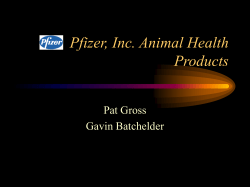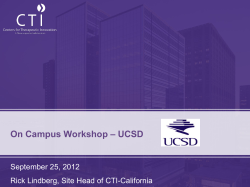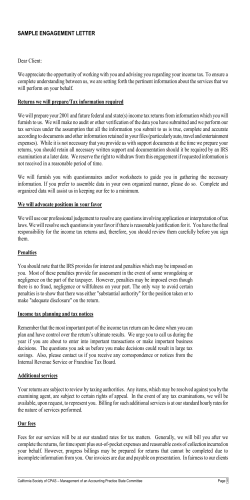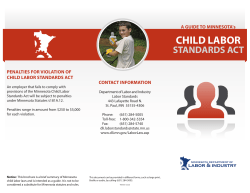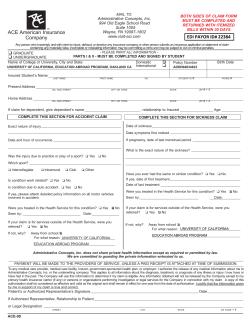
to pay $430 million in criminal fi nes and
$1.42 billion in fines and penalties to settle charges that it had for at least four years illegally marketed Zyprexa, a drug approved for the treatment of schizophrenia, as a remedy for dementia in elderly patients. In five company-sponsored clinical trials, 31 people out of 1,184 participants died after taking the drug for dementia—twice the death rate for those taking a placebo. Those findings were reported in an October 2005 article in the Journal of the American Medical Association. “Marketing departments of many drug companies don’t respect any boundaries of professionalism or the law,” says Jerry Avorn, a professor at Harvard Medical School in Boston and aun the morning of Sept. 2, 2009, another Pfizer thor of Powerful Medicines: The Benefits, Risks, and Costs of Preunit, Pharmacia & Upjohn, agreed to plead guilty scription Drugs (Random House, 2004). “The Pfizer and Lilly to the same crime. This time, Pfizer executives cases involved the illegal promotion of drugs that have been had been instructing more than 100 salespeople shown to cause substantial harm and death to patients.” to promote Bextra, a drug approved only for the The widespread off-label promotion of drugs is yet another relief of arthritis and menstrual discomfort, for treatment of manifestation of a health-care system that has become dysacute pains of all kinds. For this new felony, Pfizer paid the largest criminal fine in U.S. history: $1.19 billion. On the same functional. “It’s an unbearable cost to a system that’s going broke,” says Avorn, who heads the pharmacology economics day, it paid $1 billion to settle civil cases involving the offunit of Brigham and Women’s Hospital in Boston. “We can’t label promotion of Bextra and three other drugs with the U.S. even afford to pay for effective, safe therapies.” and 49 states. About 15 percent of all drug sales in the U.S. are for unap“At the very same time Pfizer was in our office negotiating and resolving the allegations of criminal conduct in 2004, Pfizer proved uses without adequate evidence the medicines work, according to a study by Randall Stafford, a medical professor at was itself in its other operations violating those very same laws,” Loucks, 54, says. “They’ve repeatedly marketed drugs for Stanford University in Palo Alto, California. He estimates that doctors write more than 10 million such prescriptions each year. things they knew they couldn’t demonstrate efficacy for. That’s As large as the penalties are for drug companies caught breakclearly criminal.” The penalties Pfizer paid this year for proing the off-label law, the fines are tiny compared with the firms’ moting Bextra off-label were the latest chapter in the drug’s beannual revenues. The $2.3 billion in fines and penalties Pfizer nighted history. The FDA found Bextra to be so dangerous that paid for marketing Bextra and three other drugs cited in the Pfizer took it off the market for all uses in 2005. Sept. 2 plea agreement for off-label uses amounts to just 14 perAcross the U.S., pharmaceutical companies have been cent of its $16.8 billion in revenue from selling those medicines pleading guilty to criminal charges or paying penalties in civil from 2001 to 2008. The total of $2.75 bilcases when the U.S. Department of Juslion Pfizer has paid in off-label penalties tice finds that they deceptively marsince 2004 is a little more than 1 percent of keted drugs for unapproved uses, Pfizer sold $12 billion the company’s revenue of $245 billion putting millions of people at risk of of neurontin, from 2004 to 2008. chest infections, heart attacks, suicidal which was marketed Lilly already had a criminal conviction impulses or death. Since May 2004, for unapproved uses. for misbranding a drug when it broke the Pfizer, Eli Lilly & Co., Bristol-Myers For four years, the drug law again in promoting schizophrenia Squibb Co. and four other drug compaoutsold Pfizer’s viagra. drug Zyprexa for off-label uses starting in nies have paid a total of $7 billion in 1999. The medication provided Lilly with fines and penalties. Six of the companies $36 billion in revenue from 2000 to 2008. admitted in court that they marketed That’s more than 25 times as much as the medicines for unapproved uses. In Septotal penalties Lilly paid in January. tember 2007, New York–based BristolCompanies regard the risk of multimilMyers paid $515 million—without lion-dollar penalties as just another cost admitting or denying wrongdoing—to of doing business, says Lon Schneider, a federal and state governments in a civil professor at the University of Southern lawsuit brought by the Justice DepartCalifornia’s Keck School of Medicine in ment. The six other companies pleaded Los Angeles. In 2006, he led a study for the guilty in criminal cases. National Institute of Mental Health of In January 2009, Indianapolis-based off-label use of drugs, including Zyprexa, Lilly, the largest U.S. psychiatric for the treatment of Alzheimer’s disease. drug maker, pleaded guilty and paid to pay $430 million in criminal fines and civil penalties, and the company’s lawyers assured Loucks and three other prosecutors that Pfizer and its units would stop promoting drugs for unauthorized purposes. What Loucks, who’s now acting U.S. attorney in Boston, didn’t know until years later was that Pfizer managers were breaking that pledge not to practice so-called offlabel marketing even before the ink was dry on their plea. 74 bloomberg markets December 2009 dec_ft_pharma.indd 74 11/12/09 12:54:15 PM shawn henry bottles anD pills photographeD by Jb reeD O shawn henry bottles and pills photographed by JB Reed Federal prosecutor Michael Loucks says Pfizer broke its promise to follow the law. “There’s an unwritten business plan,” he says. “They’re drivers that knowingly speed. If stopped, they pay the fine, and then they do it again.” Schneider has been paid both by Lilly as a consultant and by plaintiffs suing the company. Big Pharma’s off-label transgressions didn’t trigger a rush for the doors by shareholders. From Jan. 26, when Pfizer announced that it would pay billions in penalties, to Oct. 12, Pfizer’s share price increased 9.3 percent, just shy of the 11.2 percent rise in the Standard & Poor’s 500 Health Care Index. From Oct. 21, 2008, when Lilly said it would pay its penalties, to Oct. 12, the company’s stock value went up 0.6 percent; the S&P index gained 6.9 percent in that time. In pushing off-label use of drugs, companies find ready and willing partners in physicians. Under the fragmented system of medical regulation in the U.S., it’s legal for doctors to prescribe FDA-approved drugs for any use. The FDA has no authority over doctors, only over drug companies, regarding off-label practices. It’s up to the 50 states to oversee physicians. “I think the physician community has to take some ownership responsibility and do their own due diligence beyond the sales and marketing person,” says Boston’s former U.S. Attorney Michael Sullivan. Loucks says prosecutors realize that patients can benefit when doctors use drugs for off-label purposes based on science and not on false marketing claims. Doctors generally don’t tell people that they’re prescribing drugs pitched to them by pharmaceutical salespeople for unapproved treatments, says Peter Lurie, deputy medical director of Public Citizen, a Washington-based public interest group. Most 75 December 2009 bloomberg markets dec_ft_pharma.indd 75 11/12/09 12:54:18 PM BROKEN PROMISES outside the U.S. that caused severe Prosecutors say Pfizer marketed these drugs off-label after birth defects. The it signed an agreement with the U.S. on May 11, 2004, to train 1962 law required employees not to promote drugs for unapproved uses. pharmaceutical DRUG (DATE*) companies to Pfizer CEO prove their drugs Jeff kindler supervised the were safe and efNeurontin setfective for specific tlement talks. uses. Before that, a drug company (April 30, 2005) (Dec. 31, 2007) Pfizer paid a $1.2 billion fine. Pfizer paid a $301.4 million penalty could market an approved medicine for any illness. Its unit pleaded guilty. and denied wrongdoing. If the law is clear, why do drug companies keep breaking it? The answer lies in economics. Pharmaceutical companies spend about $1 billion to develop and test a new drug. To recoup their investment, the companies want doctors to prescribe their drugs as widely as possible. Pfizer’s Neurontin is a case in point. The FDA approved the drug as a supplemental medication in (Feb. 28, 2008) (Oct. 31, 2008) treating epilepsy in 1993. Pfizer took in $2.27 billion from sales Pfizer paid a $97.9 million penalty Pfizer paid a $48.2 million penalty and admitted wrongdoing. and denied wrongdoing. of Neurontin in 2002. A full 94 percent—$2.12 billion—of that revenue came from off-label use, according to the prosecutors’ *Prosecutors say Pfizer marketed the drug off-label until this date. Source: U.S. Justice Department 2004 Pfizer sentencing memo. Pfizer, which bought Wyeth on Oct. 15 for $68 billion, put itself at the center of illegal off-label drug marketing with an acphysicianspharmtime11 don’t keep track of FDA-approved uses of drugs, says FILE quisition frenzy a decade earlier. From 1995 to 2005, Pfizer Lurie, a physician who has published articles in The Lancet and 40p0 x 10p0 SIZE purchased more than 20 companies. Since 2004, companies the Journal of the American Medical Association. “The great majorNOTES New size that are now Pfizer divisions have pleaded guilty to off-label ity of doctors have no idea; they don’t even understand the dismarketing of two drugs. Pfizer continued off-label promotions tinction between on- and off-labeling,” Lurie says. for these medications after buying the firms, according to Pfizer’s Sept. 2 guilty plea and FDA correspondence with Pfizer. harmaceutical companies have showered doctors Pfizer first stepped into an off-label scheme in 1999, when it with cash to persuade them to use drugs off-label, offered to buy Morris Plains, New Jersey–based Warner-Lambert according to their guilty pleas. Pfizer’s marketing Co. Prosecutors charged that Warnerprogram offered doctors up to Lambert marketed Neurontin off-label $1,000 a day to allow a Pfizer between 1995 and 1999. Warner-Lambert salesperson to spend time with the physi‘Your misleading admitted doing so for one year in a May cian and his patients, according to a promotion of Zyvox 2004 guilty plea for which Pfizer paid whistle-blower lawsuit filed by John poses serious public $430 million in fines and penalties. Kopchinski, who worked as a salesman at health and safety Neurontin, which was invented by Pfizer from 1992 to 2003. “By ‘pairing up’ concerns,’ the FDA Warner-Lambert, was first tested in huwith a physician, the sales representative wrote to Pfizer’s CEO. mans in 1987. When the FDA approved it was able to promote over a period of in 1993 to be used only along with other many hours, without the usual problems epilepsy drugs, the agency wrote that a of gaining access to prescribing physiside effect of the drug can be that it incians,” Kopchinski says. “In essence, this duces depression and suicidal thoughts amounted to Pfizer buying access to phyin patients. sicians.” Pfizer spokesman Chris Loder Much of what prosecutors learned says the company stopped what it calls about Warner-Lambert’s marketing of “mentorships” in 2005. He says Pfizer Neurontin comes from a former empaid doctors $250 per visit. ployee. David Franklin, who holds a It used to be legal for companies to Ph.D. in microbiology from the Univerpromote drugs for any use in the U.S. sity of Rhode Island, left his job as a pediCongress banned the practice in 1962. atric researcher at Harvard University’s The catalyst was Thalidomide, a morning Dana-Farber Cancer Institute in 1996 to sickness drug taken by pregnant women Bextra Geodon Zyvox Lyrica Daniel acker/bloomberg news P 76 bloomberg markets December 2009 dec_ft_pharma.indd 76 11/12/09 12:54:20 PM
© Copyright 2025



